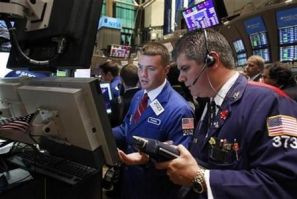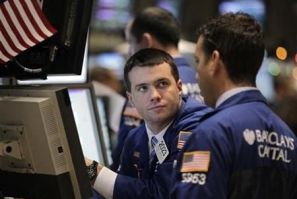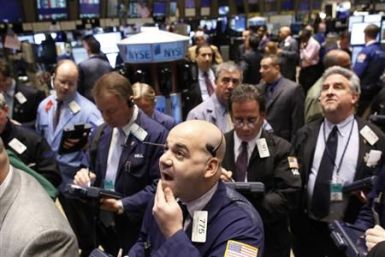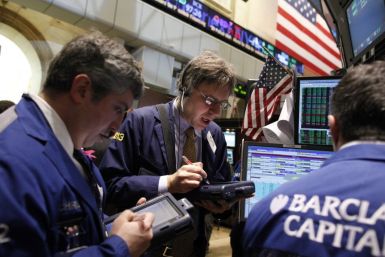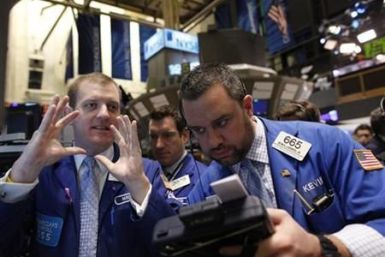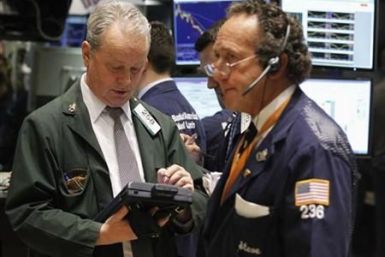U.S. stocks ended mixed on Monday as gains from materials and health care sector shares were offset by declines from technology and financials.
U.S. stocks advanced in early trade on Monday as investors looked to extend a two-week winning streak in the major indexes.
U.S. stocks ended higher on Friday on strong jobs data. The Dow Jones industrial average gained 56.99 points, or 0.46 percent, to 12,376.72. The Standard & Poor's 500 advanced 6.58 points, or 0.50 percent, to 1,332.41. The Nasdaq Composite rose 8.53 points, or 0.31 percent, to 2,789.60.
The Australian stock market closed higher on Friday on stronger international oil prices and as investors looked past overseas negatives to forthcoming economic data from the United States.
Persistent Federal Reserve critic Representative Ron Paul plans to hold a hearing on the central bank's emergency loans to the branches of non-U.S. banks, and could ask a Fed official to testify, his spokeswoman said on Saturday.
Persistent Federal Reserve critic Representative Ron Paul plans to hold a hearing on the central bank's emergency loans to the branches of non-U.S. banks, and could ask a Fed official to testify, his spokeswoman said on Saturday.
It would be a surprise if the U.S. Federal Reserve did not complete its $600 billion in bond purchases, though the benefits of doing more have fallen, a top Fed official said on Friday.
The U.S. economy may add jobs more rapidly in coming months as the recovery gathers steam, but that is not a reason for the Federal Reserve to reverse course, a top Fed official said on Friday.
Raising interest rates by the end of 2011 should be on the table, depending on how the economy improves over the next few months, Philadelphia Federal Reserve Bank President Charles Plosser said on Friday.
The U.S. Federal Reserve should not be too sanguine in believing that the time to reverse easy monetary policy is a long way off and that it will be gradual, a top Fed official said on Friday.
Spot Gold slumped 1.4% lunchtime Friday in London, falling back from its highest-ever monthly close as the Dollar jumped on news of stronger-than-expected US jobs hiring in March.
U.S. stocks ended mixed on Thursday as investors awaited Friday’s Bureau of Labor Statistics jobs report, while slightly weaker-than-expected economic reports on jobless claims and Chicago Purchasing Managers index weighed on the sentiment.
The Federal Reserve on Thursday released the names of banks that borrowed from its main emergency lending facility during the financial crisis after having run out of legal appeals to block publication.
An inveterate Federal Reserve advocate of tighter financial conditions on Wednesday renewed his call for higher benchmark interest rates and shrinking the Fed's balance sheet to pre-financial crisis levels.
It is our contention that if the monthly private sector job growth shows a gain of 200,000 jobs or more, then it will be very difficult for the financial markets not to have a strong response to the collective employment data.
The delay by the Federal Reserve Board in adopting final rules to limit debit-card interchange fees could benefit the largest banks.
The Federal Reserve will not meet an April 21 deadline for issuing a final rule cracking down on the fees banks charge merchants when a debit card is used, Fed Chairman Ben Bernanke said in a letter to U.S. lawmakers on Tuesday.
St. Louis Federal Reserve chief James Bullard urged the U.S. central bank on Tuesday to begin reversing its campaign of monetary easing, saying it could trim its $600 billion bond-buying program by $100 billion.
The U.S. Federal Reserve's $600 billion asset purchase program could be trimmed by some $100 billion given the recovery in the U.S. economy, St. Louis Federal Reserve President James Bullard said on Tuesday.
U.S. policymakers may not be willing or able to wait for all global uncertainties to be resolved before they begin normalizing loose monetary policy, St. Louis Federal Reserve President James Bullard said on Tuesday.
U.S. policymakers may not be willing or able to wait for all global uncertainties to be resolved before they begin normalizing its loose monetary policy, St. Louis Federal Reserve President James Bullard said on Tuesday.
The U.S. economy still needs support from the Federal Reserve's full $600 billion planned bond purchases, despite signs its recovery is becoming self sustaining, top Fed officials said on Monday.




